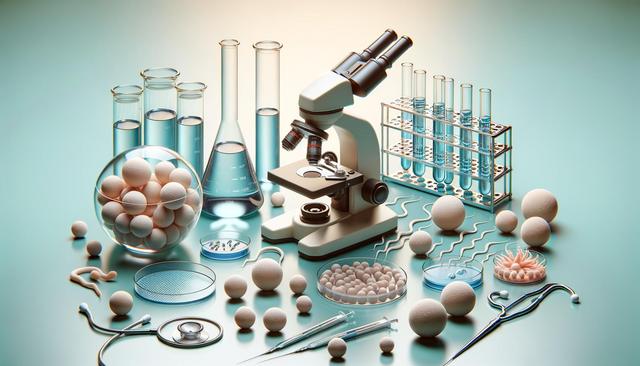Understanding Sperm Donor Services in 2025: A Path to Parenthood and Medical Advancement
Sperm donor services have become an essential option for individuals and couples facing infertility, single women wanting to start a family, and LGBTQ+ families pursuing parenthood. In 2025, these services are more accessible, regulated, and inclusive than ever before.

Modern Access to Sperm Donor Services
In 2025, access to sperm donor services has expanded significantly due to advances in medical technology and evolving social perspectives. Individuals and couples can now explore options that were once limited by geography, cost, or societal stigma. A modern Sperm Donation Clinic typically offers a wide range of services, including online donor selection, genetic screening, and comprehensive counseling. These clinics aim to support clients from various backgrounds, ensuring that everyone, regardless of relationship status or sexual orientation, has the opportunity to pursue parenthood.
Increasingly, services are designed to be user-friendly and transparent. Digital platforms allow clients to browse donor profiles, learn about medical histories, and even watch video interviews. Additionally, many clinics are partnering with broader networks of fertility professionals to ensure seamless experiences. For those searching for a “Fertility Clinic Nearby,” modern tools such as location-based search and virtual consultations make it easier than ever to start the journey without unnecessary delays.
The Donor Selection and Screening Process
Choosing a sperm donor is a deeply personal decision, and the selection process in 2025 is both thorough and respectful of individual preferences. A reputable Sperm Donation Clinic follows strict screening protocols that include:
- Comprehensive medical and genetic testing
- Psychological evaluations of donors
- Background checks and lifestyle assessments
These measures are in place to ensure the health and safety of both the donor and the potential child. Clients can filter donor options by physical characteristics, educational background, and other factors that may be important to them. Transparency around health history and donor motivations helps intended parents make informed decisions with confidence.
Furthermore, many clinics support open-identity donation, allowing donor-conceived children to contact their donor once they reach a certain age, if both parties consent. This approach reflects a growing awareness of the emotional and psychological needs of all individuals involved.
Understanding Donor Insemination Services
Donor Insemination Services are a central part of the sperm donation process, and they have evolved to become more precise and patient-centered. These services involve introducing donor sperm into a recipient’s reproductive system through clinical procedures such as intrauterine insemination (IUI) or in vitro fertilization (IVF). The choice of method depends on various factors, including the recipient’s fertility health, age, and treatment goals.
Fertility specialists work closely with each client to develop a custom treatment plan. The experience typically includes:
- Initial fertility assessments
- Cycle monitoring and ovulation tracking
- Insemination scheduling and follow-up
Technological innovations in reproductive medicine have improved success rates and reduced treatment discomfort. Clinics offering Donor Insemination Services also emphasize emotional support, providing access to counseling services and peer support groups throughout the process.
Legal and Ethical Considerations
With increased demand for sperm donor services comes a greater need for clear legal and ethical frameworks. In 2025, regulations around sperm donation have become more standardized across regions, offering better protection for both donors and recipients. Most Sperm Donation Clinics now provide legal consultation as part of their service package, helping intended parents understand their rights and responsibilities.
Key legal considerations include:
- Parental rights and responsibilities
- Donor anonymity and privacy
- Regulations around donor limits to reduce the risk of consanguinity
Ethical practices in donor recruitment and compensation are also emphasized. Clinics are encouraged to maintain transparency in how donors are selected and compensated, ensuring that the process remains respectful and voluntary. These safeguards foster a more trusting and equitable environment for all participants.
Finding a Fertility Clinic Nearby
For those exploring their reproductive options, finding a reliable “Fertility Clinic Nearby” is often the first step. Today’s fertility clinics are better equipped to serve a diverse clientele, with many offering multilingual services, inclusive policies, and flexible appointment scheduling. Whether located in urban centers or regional areas, clinics are increasingly focused on accessibility and personalized care.
When evaluating clinics, it’s helpful to consider:
- Certifications and experience of medical staff
- Range of services and treatment options
- Client reviews and success rates
- Availability of donor profiles and insemination services
Many clinics also offer virtual consultations, making it easier to begin the journey from home. By combining professional expertise with compassionate care, these clinics play a pivotal role in helping people build their families in a way that aligns with their values and circumstances.
Conclusion: A New Era of Family Building
The landscape of sperm donor services in 2025 reflects significant progress in medical science, societal understanding, and inclusivity. Whether through a Sperm Donation Clinic or seeking Donor Insemination Services at a Fertility Clinic Nearby, individuals and couples today benefit from a wide range of supportive, ethical, and effective options. As these services continue to evolve, they offer not only the possibility of parenthood but also a deeper appreciation for the diverse ways families are formed.